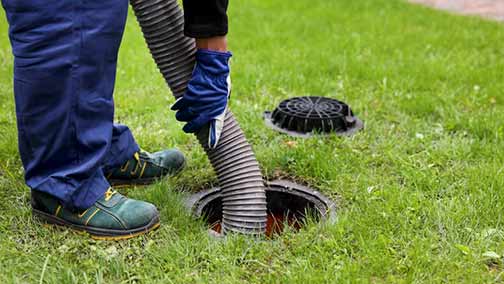Understanding Septic System Smell: An Overview of Its Causes and Effects
Septic systems are an integral part of many residential areas, offering a reliable means for waste management. However, when these systems malfunction, they can release unpleasant odors that invade your home environment. Understanding the causes of these smells is essential for maintaining a healthy and comfortable living space. These odors not only affect your comfort but can also indicate underlying issues that require attention.
Common Causes of Septic System Odors and Their Implications
Septic system odors can arise from a variety of issues. A primary cause is the accumulation of waste materials that fail to decompose properly. When waste builds up, it can lead to the production of gases such as hydrogen sulfide, known for its distinctive rotten egg smell. Additionally, blockages in the system can prevent the proper flow of waste, exacerbating odor issues. These blockages often result from flushing non-biodegradable items or excessive water usage, which can overwhelm the system.
Impact of Septic System Odors on Your Living Environment and Health
The impact of septic system smells on your living environment can be significant, leading to discomfort and potential health risks. The presence of these odors can make indoor spaces unpleasant and may even deter guests from visiting your home. Moreover, prolonged exposure to certain gases emitted by malfunctioning septic systems can pose health hazards, including respiratory issues and headaches. Understanding these impacts is crucial for taking timely action to address the odors.
Early Detection of Septic System Problems: Key Indicators
Detecting septic system issues early is key to preventing odor problems. Homeowners should regularly inspect their septic systems for signs of malfunction, such as slow drainage, gurgling sounds, or visible waste pooling in the yard. Employing routine maintenance checks can help identify problems before they escalate into more serious issues. Early detection not only helps in managing odors but also extends the lifespan of your septic system.

Prevention Strategies for Septic System Odors: Best Practices
Preventing septic system odors involves a combination of regular maintenance and mindful usage. Homeowners should ensure their septic tanks are pumped out regularly to prevent waste buildup. Additionally, using water efficiently and avoiding the disposal of non-biodegradable materials can help maintain the system’s functionality. Installing proper ventilation can also mitigate odor issues by allowing gases to escape safely. Adopting these practices can significantly reduce the risk of odor-related problems.
Professional Assistance for Septic System Maintenance: When to Seek Help
While regular maintenance can be performed by homeowners, seeking professional assistance is often necessary for more complex issues. Septic system specialists can provide thorough inspections and pump out your septic tank with advanced solutions for persistent odor problems. Their expertise ensures that systems function optimally, reducing the likelihood of future malfunctions. Knowing when to call a professional can save you time, money, and the inconvenience of dealing with persistent odors.
Innovative Solutions for Septic System Management: Embracing New Technologies
Advancements in septic system technology offer innovative solutions for managing odors and maintaining system efficiency. Modern systems are equipped with features such as aerobic treatment units and enhanced filtration methods, which improve waste decomposition and reduce odor production. Exploring these options can lead to a more sustainable and odor-free living environment. Embracing new technologies not only enhances system performance but also contributes to environmental conservation.
Conclusion: Maintaining a Healthy Home Environment with Proactive Septic System Care
Understanding the causes of septic system smells and implementing effective prevention strategies are vital for maintaining a healthy home environment. By prioritizing regular maintenance, seeking professional help when needed, and embracing innovative solutions, homeowners can ensure their septic systems function efficiently and odor-free. Ultimately, a proactive approach to septic system care contributes to a comfortable and safe living space. By staying informed and vigilant, homeowners can protect their homes and health from the adverse effects of septic system odors.


